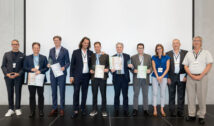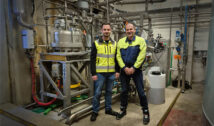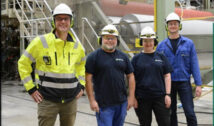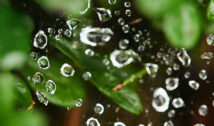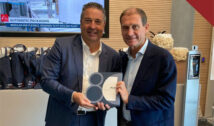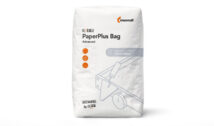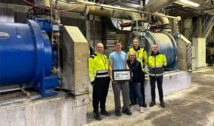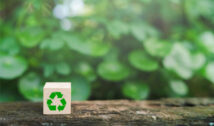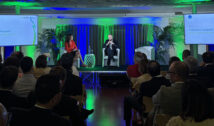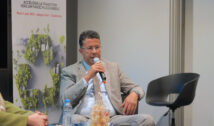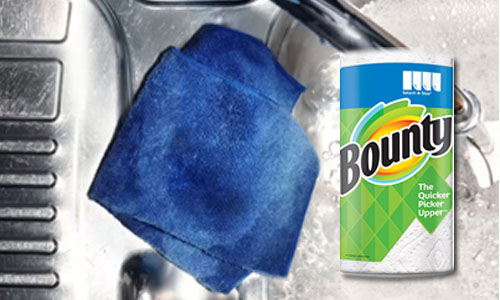
P&G’s Bounty Paper Towels is setting out to uncover potential hidden bacteria in the home and has recruited key scientists and influencers to unveil where microbes can be present, and offer their expert tips to get the level of clean people want in their homes. Partners include science educator and media personality Bill Nye, neuroscientist and actress Mayim Bialik, YouTube content creator Nick Uhas, as well as microbiologists Kennen Hutchison and Jessica Malaty Rivera.
A new survey* by Bounty revealed that Americans are spending more time cleaning than ever before and nearly 92% have changed their behavior in the past year to clean more thoroughly, frequently, or in areas that had been previously untouched. Despite this uptick in concern for a hygienic home, many continue to reach for a used dishcloth to wipe up a spill or mess.
“Used dishcloths can be a haven for bacteria,” says infectious disease expert and microbiologist Jessica Malaty Rivera. “Because they are multipurpose and often go unwashed between uses, the wet and absorbent nature of the product can provide a flourishing environment for bacteria to grow.”
When asked how often consumers wash their kitchen towels, the survey revealed that just 11% will replace or wash their dishcloth after a full week of usage.
According to Kennen Hutchison, a virology PhD student, “Studies** have confirmed that used dishcloths can contain E. coli and coliform bacteria (fecal contamination) which isn’t visible to the naked eye. And when you wipe up a spill on the counter with a used towel, or dry a dish, you could cross contaminate multiple surfaces.”
Through an educational video series that will include live demonstrations and creative experiments, this troupe of scientists and influencers will share their tips and recommendations to help consumers achieve a healthy home.
Experts such as Rivera and Hutchison recommend using a fresh paper towel, rather than a used dishcloth, to wipe up and throw away messes, and help reduce the risk of cross contamination from one surface to another.
Consumers can follow the series of experiments on social using #HygieneBeginsWithBounty or at @bountypapertowels.
* A survey conducted by www.OnePoll.com on the topic of cleaning behaviors was distributed in February 2021 to a sample group of 2,005 respondents with the US general population.
**A published study on ResearchGate.com from 2014 found that out of 82 kitchen hand towels collected across the U.S. and Canada, coliform bacteria (fecal contamination) was present in nearly 9 out of 10 and E. coli was present in 1 in 4.




